This week, 58 years ago, set the tone for the struggles that have come to define me. It was a week that set me up to watch the broken windows through which the dream bandits escaped, each time they made away with a portion of my promise.
Sometimes they stole a huge chunk, at other times it was pickpocketing. Slowly and steadily, they looted the purpose of my being created.
Even though there is truly no honour amongst these thieves I kept wondering if they could be steered in conscience, not just to see the shambles of my existence from their despoliation, but the death of millions, the expired hope of many more and the shame of a nation that has resulted from the graduating escapades of their brigandage, from pilfering to armed robbery. But what I remember they first stole from me, besides my innocence being lost to the Nigeria/Biafra civil war, was my 18th birthday.
Watch the video here:
Join our WhatsApp Channel
Growing up in Ibadan, attending Loyola College, after the outbreak of the civil war led to my migration from CKC in Onitsha, I came to be close to many who went to the University of Ibadan.
Back in those days, it was true that if at 18 you were not the conscience of the nation something was wrong with your heart. The students of UI were thus of the right conditions of heart when they turned out in protest and a police bullet took the life of one of them, Kunle Adepeju, just as police and Army bullets did to many more 50 years later, in the crushing of the EndSARS protests at the Lekki Toll Gate.
But in those days the youth had fighting and staying power. The protests asking for Justice for Kunle Adepeju would not abate.
When I got into the University of Nigeria, Nsukka, in 1973 I found concerns about setbacks from the time and dreams lost to war had dulled the spirit of being 18, of letting the heart rule. My contemporaries at UzNN had forsaken the fine art of social concerns and protest for justice and equity. The focus was a book.
Boko haram would have been more than a hard sell in Nsukka in those days when the philosophy seemed to be read to the quench.
At the time the Adepeju protests had resulted in the closure of UI, ABU, Ife, and Unilag. Only we, at UNN were in school. That assaulted my sense of solidarity and a shared humanity. So I began to gather friends to do something. Then I found that Bassey Ekpo Bassey was trying to do something. We submitted to his leadership and we birthed the Students Democratic Society.
For days, early in February 1974, we met in Bassey’s room to plot the overthrow of the Students Union Government which failed to share our concerns.
At 5 am one morning, our protest march around campus began, first drawing insults and jeers from our fellow students, then some grudging acknowledgement we had the right to a different point of view until all gathered for a unity rally.
We were suddenly joined by a celebrated ‘professional’ student’, Chairman P. Pinnick, who moved us from our Campus gate trajectory and destination where we hoped to attract media attention, to the Lodge of the Vice Chancellor, Professor. Herbert Kodilinye.
The VC permitted a rally of the entire student population for that evening.
At the rally, Chairman P began to speak. He started with pump: Today February 6th 1974 will be remembered as a day when people who were physically demobilized at the end of the war were actually mentally demobilized.
Oh my God. The date. That date. It was my 18th birthday.
Who forgets their own 18th birthday? The Nigerian condition had robbed me of my 18th birthday. And for years after, those who captured Nigeria would diminish me every day by stealing something valuable from who I was meant to be.
The robbery would be lifelong even unto this vexed Autumn of my time of being, these times of a broken economy, insecurity and high-octane corruption.
In that same 1974, I met a fine gentleman who had graduated from the University of Ibadan about the time of angst from the Adepeju killing.
He was working then for BP where I had my first vacation job experience. The friendship has remained close all these years and given me the pleasure to be egbon, big brother to his children.
Otunba Tunji Lawal-Solarin at every turn of events in our national experience, since those days, would seek out my evaluation of where things were and where I thought they would be going.
Each time, he would open his mouth in amazement and say: aburo, you said this would happen and it has happened as you said.
I would remind him I did not have the gift of prophecy but did a simple logical projection of trends. A few times he had doubted my anxieties and when the events turned out as I predicted he would often come back and say ‘But how could you have seen that’.
When I graduated as a confident 21-year-old in 1977 our output per person in Nigeria was twice that of China but for some of us the real issue was that we were impatient that military rule was doing more in South Korea than it was doing here and we badgered the military.
As a youth corps member, my voice was loud and clear, pushing the issues. I watched as Deng replaced Mao and set China on a new course.
The very day NYSC ended I was on the plane flying out to graduate studies in the US. I would get more precocious there but would be humbled to see Deng’s China go to 30 times our output person and look on as South Korea established itself as an industrial power while the President of Nigeria announced to the world on the eve of a regional WEF, in A try that the measure of Nigeria’s accomplishment was that it was the fastest growing private jet market in the world in 2014.
A few years later statistics would declare Nigeria the poverty capital of the world. Just another way they stole the possibilities of a better life for all and depressed Nigerians who held on to the hope in the u promise of Nigeria which the founding fathers held out.
There in Grad school, I had a Thai classmate and a Malaysian girlfriend. All those Asians were green with envy at how smart these Nigerian graduate students were.
A year before I was done with my PhD the Malaysian girl returned home on completion of her Masters degree and Kowit my classmate submitted his Doctoral dissertation just before mine and moved back to Bangkok.
I never heard from or saw Farida again but I ran into Kowit at Charles DeGaulle Airport on my way from a Europe-Africa summit called by Aspen Institute, France. Aspen, France Chaired by former French Prime Minister Raymond Barre. The theme of the summit, in those dark days of Afropessimism, as famine and civil wars ravaged the continent, was Africa must produce or die.
I was still suffering from the summit-induced depression when out of the moving morning rush of Airport transit passengers from around the planet, a familiar face. Paaaat. Kowiiiiit. And the first words he could find to say were ‘What happened to Nigeria? You guys were the smartest in class.
I could not find the words to reply. Things happen. He saw my awkwardness and very graciously changed topics. I reminded myself that only a few weeks before I had mentioned his name in my class at LBS when I was debunking the thesis that coups slowed us down by pointing to the fact that Thailand was having more frequent coup d’etats but economic growth was in double digits when Nigeria was flat-footed.
The class was discussing my illustration of a dark day when I proposed to the board that ISI Assembly plants were not the best strategy for Nigeria and that the German board consider making the Nigerian subsidiary’s base
the main source for the supply into its global production of cars, two or three components derived from manufacture from Nigeria’s factor endowments in rubber. This would require massive investments in a majorly German-owned firm for the purpose. A sentimental two per cent could then be ceded to the troubling to run joint venture which was struggling to get FGN to do the needful to ensure the firm in which it owned significant shares was operating effectively.
I said it would create hundreds of thousands of jobs in Nigeria give a cost advantage in rubber components inputs for Volkswagen worldwide and perhaps generate more foreign exchange for Nigeria than it was making from crude Oil sales. This was a win-win no-brainer, I argued. I had made this proposal having spent time in VW Canada which did not have car-building facilities but had been assigned the production of Catalytic Converters as environmental issues gained currency.
Quiet greeted my proposal. When I got up to ease myself I found a member of the parent board who came only occasionally to the Nigeria board meetings followed me.
In the toilet, Dr Peter Frerk said to me that he had a confession to make. He said the impression they were led to believe back home was that the locals in the Nigerian company were not particularly smart but generally lazy pilferers of company goods in a plant that had more coconut trees than the number of cars foreign exchange allocation enabled them to assemble.
He said my suggestion was absolutely brilliant. But with borders closed so often, after coups, it would be hard if not dangerous for a company to rely on such a source for its global requirements. What he suggested galled me but I could do nothing because the government would not even respond to the second capital call of the company for years and paid the small amount unconventionally because I used my personal friendship with then Industries Minister AVM Mohammed Yahaya to get a cheque from the Ministry of Industries rather than the official government shareholder, Ministry of Finance Incorporated, MOFI.
Frerk reminded me Germany was fed up enough with the JV that by the time I joined the company they were trying to get Mandilas to buy them out but John Mandilas was not so keen.
We returned to the meeting but days after I thought of Kowit and Thailand’s many coups and decided coups were not enough of an explanation. They sure mattered but Thailand was doing okay even with its coups largely because of elite consensus and the unifying role of the monarchy.
So Kowit went home and gave his bit. I too left the very day my doctoral dissertation was accepted in 1982 that I could not wait to pick up my own copies of my dissertation from the bindery. That chore was left to my friend, Folu Ogundimu, who would keep them till I returned for commencement ( Graduation ceremonies) months later. But on my way home, on that long crossing of the Atlantic, I made a pledge to the big man up in the heavens. I figured I would be criticizing many things wrong in society but did not want to be the iconoclast or muckraker.
I prayed for Grace to do something, no matter how feeble to leave an impact for good in everything I would criticize rather than be the rabble-rouser who cannot do, it or be the intellectual locked up in the Holy Grail Ivory tower of their contemplation. That prayer has generated activity stretch for forty years, from programs for poor widows, to youth and leadership development, TV shows that have run for 22 years and counting, academic work in several disciplines and entrepreneurship initiatives in several sectors of the economy. It is a stretch that sometimes leaves you feeling alone and lonely in a crowd. Yet their knees remain on your neck as they steal the possibilities of your life’s journey.
To be fair Nigeria gave me a break Kowit probably could only dream of. With no godfather, a Vice President who had been reading my policy ideas sent for me. With no hint he had something in mind he recommended me to the President and when it was done, just casually informed me the President had approved for me to replace a Professor of mine in a presidential advisory position. Not long after, the military returned. And I watched them bring Nigeria from the pride of a race to a laughing stock. Repeatedly Otunba Lawal-Solarin would ask me: Aburo, what is going on?
Each time I projected further decline, he would think, Haba; it cannot be that bad, and two years later he would say Ahh ah it’s getting worse than you predicted.
There are many terrible ways to die but the worst kind of death is to watch your own slow strangulation by people who profess love but the only love they know is self-love and so are deaf to your chant of I cannot breath. Nigeria has had the misfortune of being governed by such people.
When I shared my worry of jumping from a frying pan to fire in the run-up to the 2015 elections he said aah aah but these are your people I shared with him the fears I had shared with the then Guardian Managing Director Emeka Izeze and a few notables. Three months into the life of the administration, even before a cabinet was put in place I told him the worst of my fears were looking likely. I predicted the government would be a tragedy for Nigerian history.
So how does a clean up campaign begin in the twilight of your years. As Mo Ibrahim lamented only in the madness of Africa does a young population wait on people going senile to ask for re-election.
Painful as it is to watch your valuables chopped away by regulatory risk, stolen elections and the predatory acts of corrupt politicians who are borrowing recklessly and have failed to cut back on their gravy train and outright corruption as they lament decking revenues turning 66 brings you a reminder of some home truths.
Just like I said at 32 that I would not mark my 38 birthday working at VWN the day I was memes to the position of Deputy Managing Director I have authorized my children to confine me if after my 70 birthday they hear I am running around asking to be voted for.
This is how I see the. World from this point in my time of being. And I thank all for helping make it a worthwhile sojourn even though I cannot breathe as I watch the stealing of the promise of creation to this person waiting to exhale.
Patrick Okedinachi Utomi, Political Economist and Professor at the Lagos Business School is the founder of the Centre for Values in Leadership
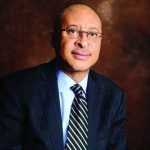

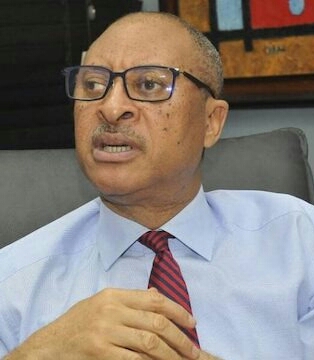



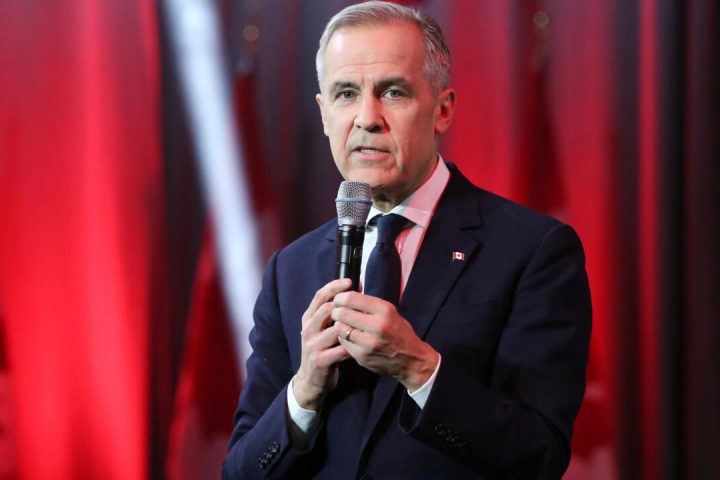
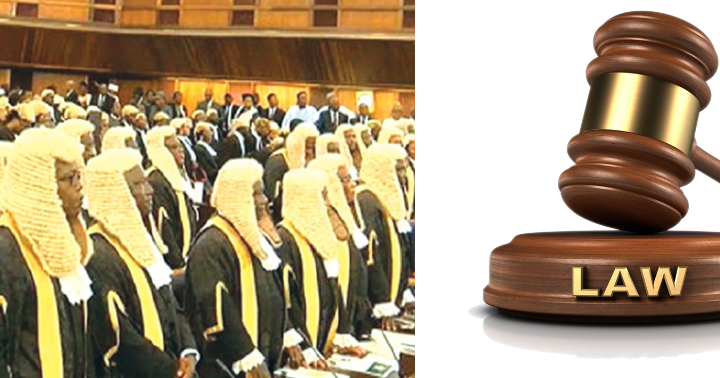








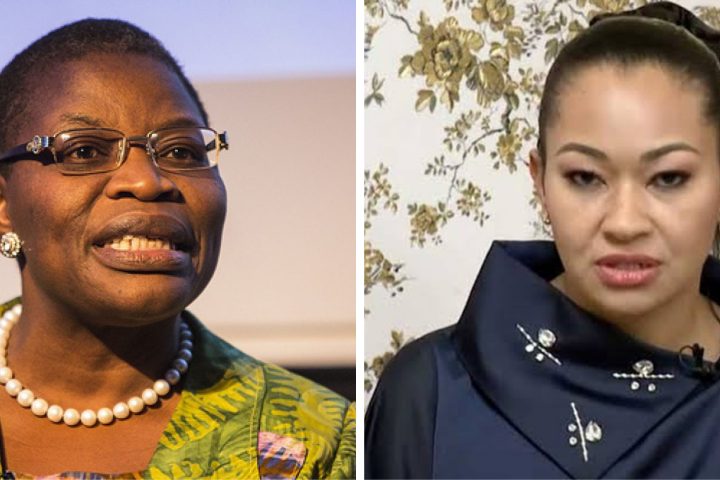
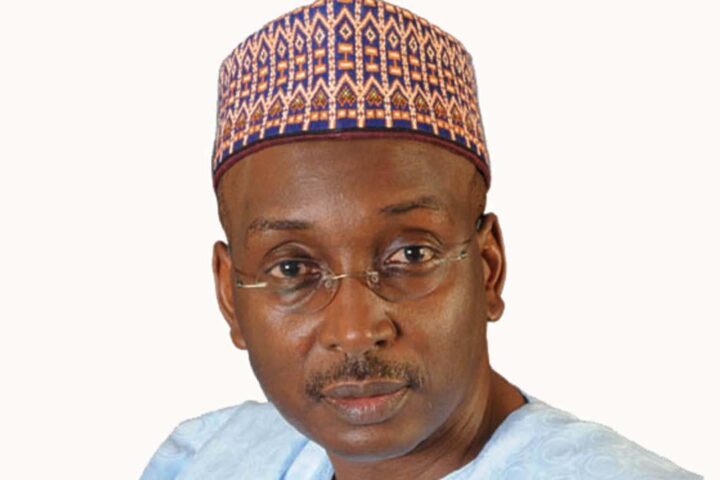
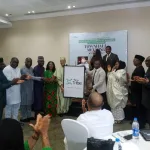
Follow Us